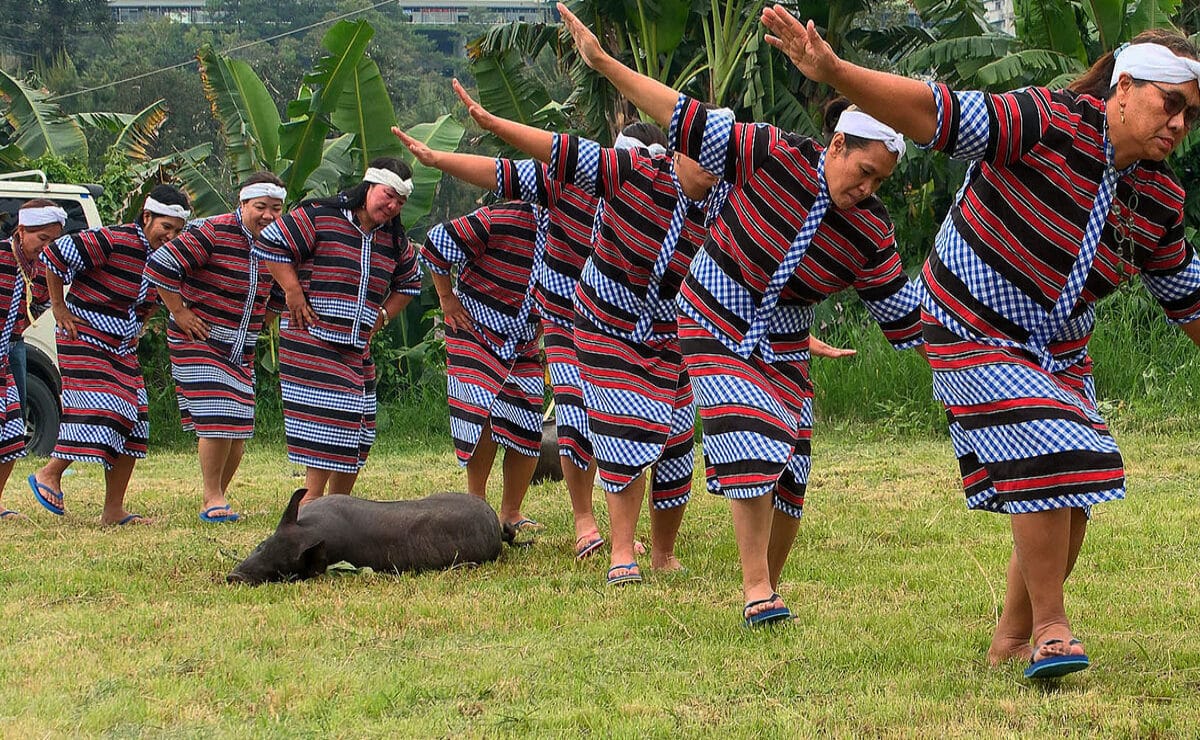Baguio City exempt from ancestral land claims under IP rights law – SC

FILE PHOTO: Baguio City is historic for a landmark US Supreme Court decision in 1909 that recognized the “native title” of indigenous peoples. The ruling is a foundation of the 1997 Indigenous Peoples Rights Act, which ironically excluded Baguio and its Ibaloy residents, shown in this community celebration, from the law’s coverage. —NEIL CLARK ONGCHANGCO
MANILA, Philippines — Baguio City is exempt from ancestral land claims under the Indigenous Peoples Rights Act of 1997 (IPRA), the Supreme Court (SC) affirmed.
The SC, however, mentioned an exception: when claimants have evidence proving “open, continuous, and actual possession of the land up to the present.”
The ruling is contained in the resolution penned by Senior Associate Justice Marvic Leonen that denied the motion for reconsideration filed by the National Commission on Indigenous Peoples (NCIP) and the heirs of Joan L. Gorio and Lauro Carantes.
The motion challenged the SC’s July 11, 2023 decision that the IPRA does not apply to Baguio City.
READ: Ancestral land titles in Baguio forest voided
The case stemmed from the claims of the Carantes heirs, who identified themselves as part of the indigenous cultural community of Ibaloi and sought ownership of parcels of land in Baguio City in 1990.
After the IPRA took effect in 1997, the NCIP took jurisdiction of the case and granted the heirs their claims in 2008.
The NCIP issued in their favor certificates of ancestral land title, ruling that the heirs’ ancestral rights over the land remained even after these were proclaimed as a government reservation, or land reserved by the government for a specific use.
However, the Office of the Solicitor General (OSG) opposed the NCIP’s ruling, noting that Baguio City’s townsite reservation is exempt from the IPRA.
The OSG likewise argued that the NCIP lacked authority to issue certificates of ancestral land titles for lands within the reservation.
But the Court of Appeals ruled in favor of the Carantes heirs and NCIP, prompting the OSG to raise the matter before the SC.
READ: SC gets Bulacan land for judiciary complex
In its July 11, 2023 decision, the SC backed OSG’s position that Baguio City is not subject to the IPRA due to its designation as a Townsite Reservation, adding that the IPRA cannot override previous proclamations granting property rights.
However, the SC also pointed out that while Baguio City is exempt from IPRA’s operation, indigenous peoples may still establish ownership of lands if they can prove continuous occupation and possession of the land since time immemorial, even if the property is within a reservation.
“In the case of Carantes’ heirs, however, they failed to prove that they and their ancestors have traditionally occupied and continue to possess the land,” the SC said.
The SC stressed that “what is needed for a claim of native title to prevail is proof that the indigenous peoples are in open, continuous, and actual possession of the land up to the present. The source of right is a vested property right. Therefore, the application for the title is not through the IPRA but through the usual land titling process.”
“Since the heirs of Carantes are clearly not currently in actual possession of the claimed ancestral land given its other present occupants, the SC denied their motion,” the SC explains.
In denying the motion for reconsideration, the SC reiterated Baguio City’s exemption from IPRA, except for native title to land, or ownership since time immemorial where the indigenous peoples are still in actual possession of the land.